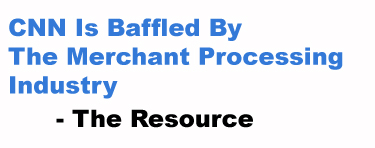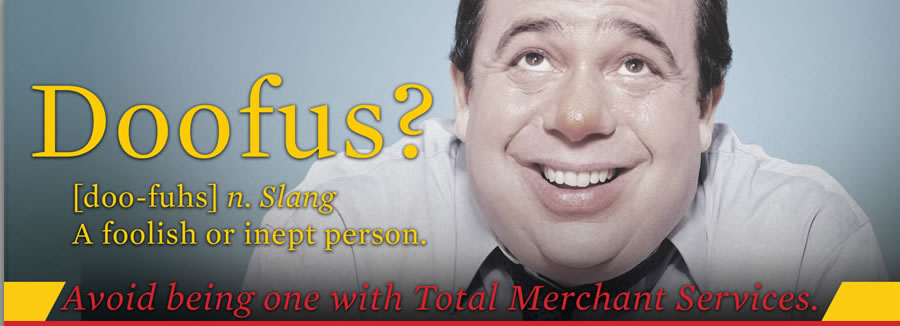Merchant Processing
“Don’t Make Us Pay” Goes Quiet
August 22, 2011Originally published on August 7, 2011.
As the Federal Reserve wound down the debit card debate on Capitol Hill, the “consumer rally” to fight against the reform followed suit. http://www.dontmakeuspay.org was/is a portal for individuals to lodge complaints with their local politican over a regulation that may potentially lead to higher debt card fees.For the most part, we championed this consumer movement since it was our belief that the Durbin Amendment would have unintended negative consequences.According to their site:
In December, the Fed issued a draconian regulation that reduces fees paid by retailers by 70 to 90 percent. As a result, the nation’s largest 2 percent of retailers will receive a $12 billion windfall – and debit card users like you will have to pay the tab.What does this mean for you? YOU could see higher fees, reduced rewards, and new debit card restrictions, unless Congress acts now to stop the rule.You shouldn’t have to pay more to use your debit card. TELL CONGRESS: DON’T MAKE US PAY.
Sounds logical enough right? We lodged our complaint with a few members of Congress and were immediately accused of astroturfing by politicians, bloggers, and retail chains. They got quite nasty too! Our advocacy for this movement led many to believe that our blog was secretly controlled by the big banks in order to create the illusion of a grass roots campaign by consumers. That was hurtful, especially since our site’s purpose is to provide businesses with free help to lower their fees, understand their statements, and make the best decision for themselves. It sure did wonders for our site traffic though, which experienced an 800% spike to all of our pages discussing debit card reform.
Although the debate pretty much ended with the final passage of the law on June 30th, 2011, the consumer movement to combat it died altogether. We have to admit that we’re a little surprised. dontmakeuspay.org has not updated their site since june 2nd, a full four weeks before the ruling. The silence is deafening, considering they used to post news several times a week. From what we’ve seen, the passage of a law never stopped the masses from voicing their discontent, especially if it was over something wildly unpopular.
But these consumers seemed to have vanished going into the homestretch and haven’t been heard from since. The banks themselves have acknowledged that the damage may not be as bad as anticipated and the retailers are claiming a mild victory. That was to be expected, especially since the final law called for an interchange cap that is nearly double than what was originally proposed. Regardless of who “won”, the opinions by both sides of the outcome have been published, politicized, criticized, or celebrated. But there seems to be no spokesman for the consumers who supposedly had been leading a crusade of their own. Are they happy with the outcome of the debit card law? Do they still believe that fees will still be passed down to them? We can’t answer their questions because the movement is seemingly MIA.
- A Retailer Celebrates: http://www.businessweek.com/magazine/sniping-at-charges-for-swiping-debt-cards-07072011.html
- A Card Issuer Tries to Stay Positive: https://debanked.com/apps/forums/topics/show/5593452-mastercard-sees-durbin-opportunity
- A Consumer Shares How They Feel: Nothing found…
Which brings us back to dontmakeuspay.org, the home base for the average Americans who believed they were about to get screwed. Even if the site was no longer being updated, surely we would find a band of angry consumers still discussing the issue on social networks like Facebook.
- Don’t Make Us Pay’s official FB Group: http://www.facebook.com/#!/group.php?gid=106108824431
Only 104 Members and the last wall post was on April 17th. Coincidentally it’s a link to an article we wrote on the topic (No wonder people thought we were directly involved). A Twitter search comes up with even less.
And so we come back to our readers with our tail between our legs. Dontmakeuspay.org was likely (just as many people accused) an astroturf campaign for the big banks. There was no national, cohesive consumer movement to fight the Durbin Amendment. Bummer.
But that doesn’t change our opinion of the legislation, nor the big banks. Increased fees were legitimately on the table but nobody was paying attention. It wasn’t until dontmakeuspay.org started slapping people in the face with mass transit posters, billboards, and internet advertisements, that the country began to realize how monumental the issue being debated was. Bringing a mass awareness to the public was a good thing and it may have ultimately achieved its goal. The proposed interchange cap went from 12 cents to 21 cents and 5 basis points, just high enough to save consumers from a world of hurt.
But that outcome should be overshadowed by the complete irony of it all. It is our opinion that both the retailers and the big banks got screwed together as a result of the reform. The only group that achieved victory, is the one that we know now didn’t even exist to begin with.
- Retailers will not see a decrease in their debit card fees. See: ‘And the Misinformation Continues‘
- Card Issuing Banks went from a limitless market rate to a strict profit killing cap
- Consumers see no rise in fees or elimination of reward programs in near future
Dontmakeuspay.org may have gone quiet, but while it was active, it helped the one group it claimed to represent. Call it deceptive, call it a decoy, call it misleading, or call it whatever you want. The big banks stuck their neck out for the little guy and the little guy won. It’s hard to hate on that…
– deBanked
https://debanked.com




































